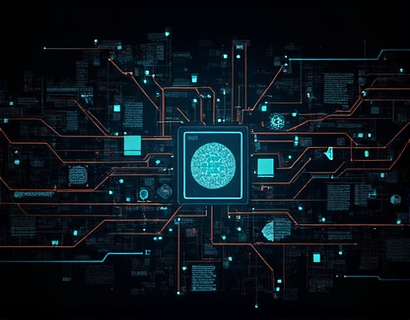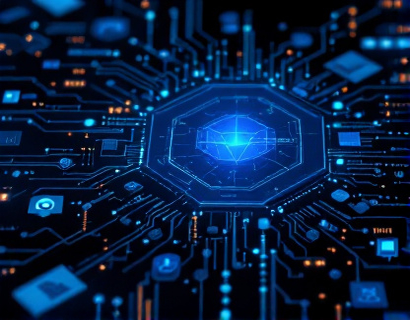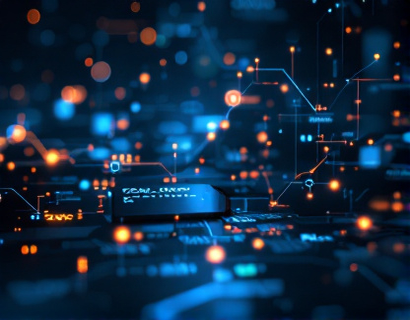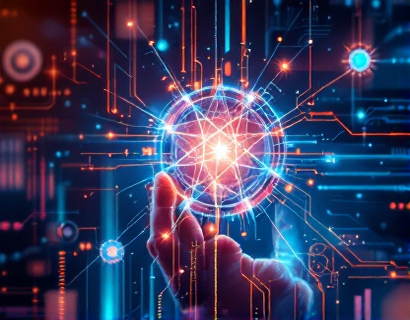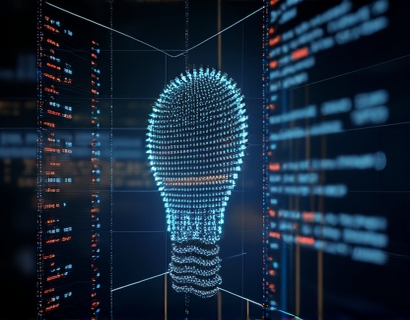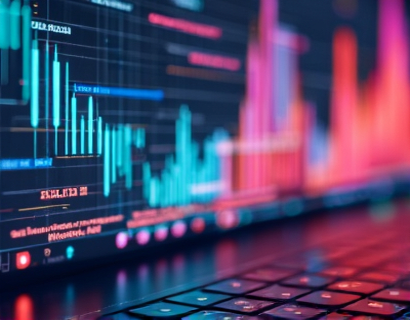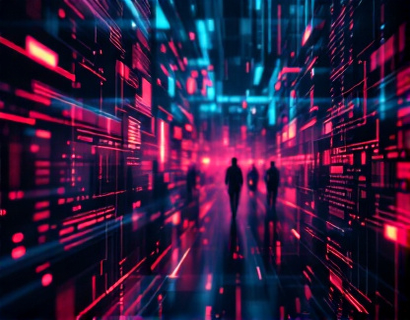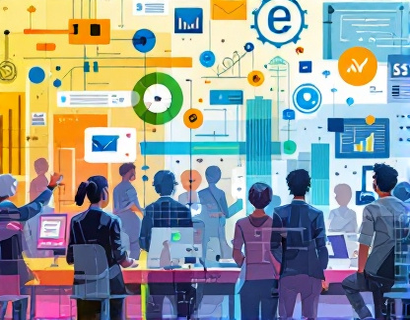Unleashing Next-Gen Productivity: The Synergy of AI and Crypto
The intersection of artificial intelligence and cryptocurrency is giving rise to a new era of digital productivity. This fusion is not just a technological curiosity but a transformative force that is redefining how we approach workflows and daily tasks. As we delve into this topic, it's essential to understand the foundational technologies driving this change and how they are being harnessed to create innovative solutions.
Artificial intelligence, with its ability to process vast amounts of data and learn from patterns, has become an indispensable tool in various industries. From healthcare to finance, AI is enhancing efficiency and accuracy. Cryptocurrency, on the other hand, has disrupted traditional financial systems by introducing decentralized, secure, and transparent transactions. When these two technologies converge, the potential for innovation is immense.
Enhancing Workflow Efficiency
The integration of AI and cryptocurrency can significantly streamline workflows. For instance, smart contracts on blockchain platforms can automate and enforce contractual obligations without the need for intermediaries. AI can optimize the execution of these smart contracts by analyzing data in real-time, ensuring that all conditions are met efficiently. This combination reduces manual errors, speeds up processes, and lowers costs.
In the realm of project management, AI-driven tools can predict project timelines and resource allocation with high accuracy. By integrating cryptocurrency, these tools can facilitate seamless payments and incentives for team members, ensuring that everyone is motivated and aligned. The use of tokens for micropayments within these platforms can also eliminate the need for traditional banking systems, making transactions faster and more secure.
Data Security and Privacy
Data security is a critical concern in today's digital landscape. The fusion of AI and cryptocurrency offers robust solutions to protect sensitive information. Blockchain's inherent security features, combined with AI's advanced encryption techniques, create a nearly impenetrable defense against cyber threats. AI can monitor network activity in real-time, detecting and mitigating potential security breaches before they occur.
Moreover, privacy-preserving technologies like zero-knowledge proofs, enhanced by AI, allow users to verify transactions without revealing sensitive data. This ensures that personal and corporate information remains confidential while still benefiting from the transparency of blockchain. The result is a secure environment where users can transact and collaborate with confidence.
Decentralized Applications
Decentralized applications (dApps) are a prime example of how AI and cryptocurrency are reshaping the digital world. These applications run on blockchain networks, leveraging AI to provide intelligent and adaptive user experiences. For instance, AI-powered chatbots within dApps can offer personalized assistance, handle customer inquiries, and even manage transactions.
The decentralized nature of these applications means that they are not controlled by any single entity, reducing the risk of censorship and ensuring greater autonomy for users. AI enhances this by providing predictive analytics and machine learning capabilities, enabling dApps to evolve and improve over time based on user interactions and data patterns.
Financial Inclusion and Accessibility
One of the most significant impacts of combining AI and cryptocurrency is the promotion of financial inclusion. Traditional banking systems often exclude large segments of the population due to high costs and stringent requirements. Cryptocurrency, powered by AI, can provide financial services to the unbanked and underbanked communities.
AI-driven financial tools can assess creditworthiness and provide loans based on alternative data sources, such as social media activity and mobile usage patterns. This democratizes access to credit and financial services, empowering individuals who were previously marginalized. Additionally, cross-border transactions become faster and cheaper, breaking down geographical barriers and fostering global economic integration.
Innovative Business Models
The synergy of AI and cryptocurrency is also giving birth to new business models that are more efficient and sustainable. For example, tokenized economies within blockchain ecosystems allow for the creation of digital assets that can represent various forms of value, from real estate to intellectual property. AI can manage these assets, optimize their distribution, and ensure fair trading practices.
Furthermore, AI can analyze market trends and consumer behavior to identify new opportunities for token-based services. This data-driven approach enables businesses to innovate rapidly and stay ahead of the competition. The transparency and immutability of blockchain ensure that transactions are fair and trustworthy, fostering a more equitable economic environment.
Challenges and Considerations
While the potential of AI and cryptocurrency is vast, there are challenges that need to be addressed. Regulatory uncertainty remains a significant hurdle, as governments worldwide grapple with how to govern these emerging technologies. Ensuring compliance while fostering innovation is a delicate balance that requires collaboration between tech companies, regulators, and policymakers.
Another consideration is the environmental impact of cryptocurrency mining, particularly proof-of-work systems. The energy consumption associated with these processes is substantial, raising concerns about sustainability. AI can play a role here by optimizing mining operations and exploring more energy-efficient consensus mechanisms, such as proof-of-stake.
Future Prospects
Looking ahead, the integration of AI and cryptocurrency is poised to revolutionize multiple sectors. In healthcare, AI-driven diagnostics combined with blockchain-based patient records can lead to more accurate and personalized medical treatments. In supply chain management, these technologies can enhance traceability and efficiency, reducing waste and improving customer satisfaction.
The education sector can also benefit from AI and cryptocurrency, with tokenized credentials and AI-powered learning platforms that adapt to individual student needs. The potential for innovation is limitless, and as these technologies continue to mature, we can expect even more groundbreaking applications.
In conclusion, the fusion of AI and cryptocurrency is not just a technological trend but a transformative force that is reshaping the way we work and interact. By leveraging the strengths of both domains, we can create a more efficient, secure, and inclusive digital world. As tech innovators and early adopters, embracing this synergy will be key to unlocking the next generation of productivity and innovation.











